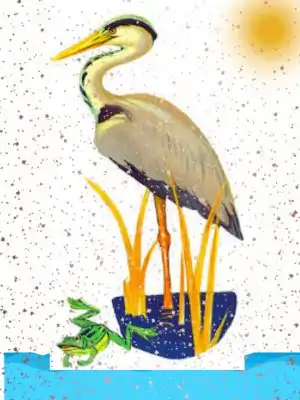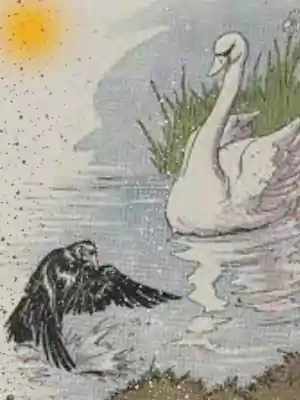The Frogs Who Wished for a King
The Frogs were tired of looking after themselves. They had so much freedom that it had spoiled them, and they did nothing but sit around croaking in a bored manner and wishing for a government that could entertain them with the fancy and showy ways of royalty, and rule them in a way to make them know they were being ruled.

No simple and boring government for them, they declared. So they sent a letter to Jupiter asking for a king.
Jupiter saw what simple and silly creatures they were, but to keep them quiet and make them think they had a king, he threw down a big log, which fell into the water with a great splash.
The Frogs hid themselves among the reeds and grasses, thinking the new king to be some scary giant. But they soon discovered how gentle and calm King Log was.
In a short time, the younger Frogs were using him for a diving platform, while the older Frogs made him a meeting place, where they complained loudly to Jupiter about the government.
To teach the Frogs a lesson, the ruler of the gods now sent a Crane to be the king of Frogland. The Crane proved to be a very different kind of king from the old King Log.
He gobbled up the poor Frogs right and left, and they soon saw what fools they had been. In sad croaks, they begged Jupiter to take away the mean tyrant before they should all be destroyed.
“How now!” cried Jupiter. “Are you not yet happy? You have what you asked for, and so you have only yourselves to blame for your misfortunes.”
Moral of the story
Think twice before asking for a change. Sometimes what you have might be better than what you get.
Be careful what you wish for; it might not turn out the way you expect.
Questions for the children
- Why do you think the Frogs wanted a king in the first place?
- What do you think the Frogs learned from their experience with King Log and the Crane?
Post Note: This story is based on Aesop’s fable, written around 600 BC. In this retelling, we’ve used simpler words to make the story easier for young readers to understand.







